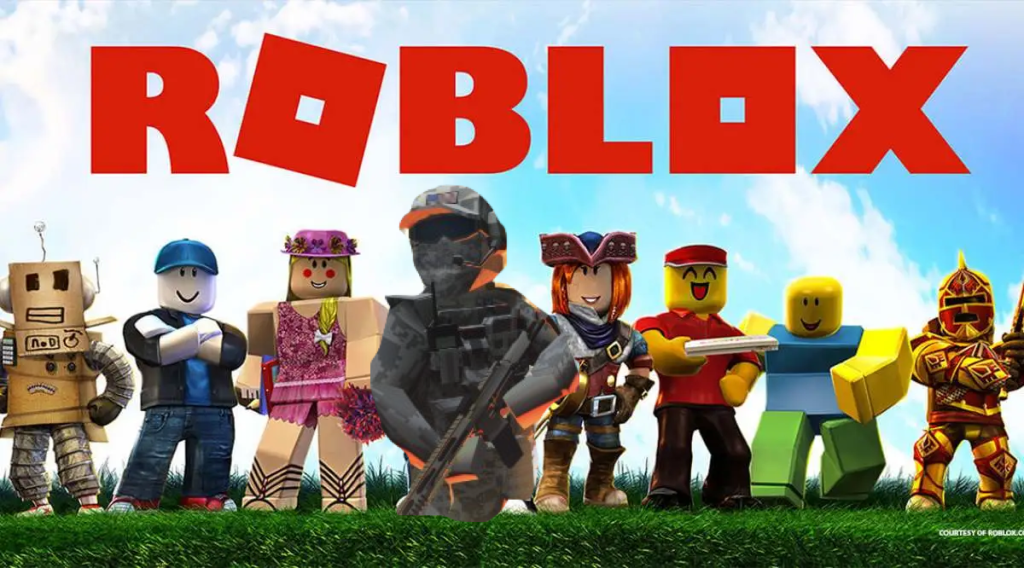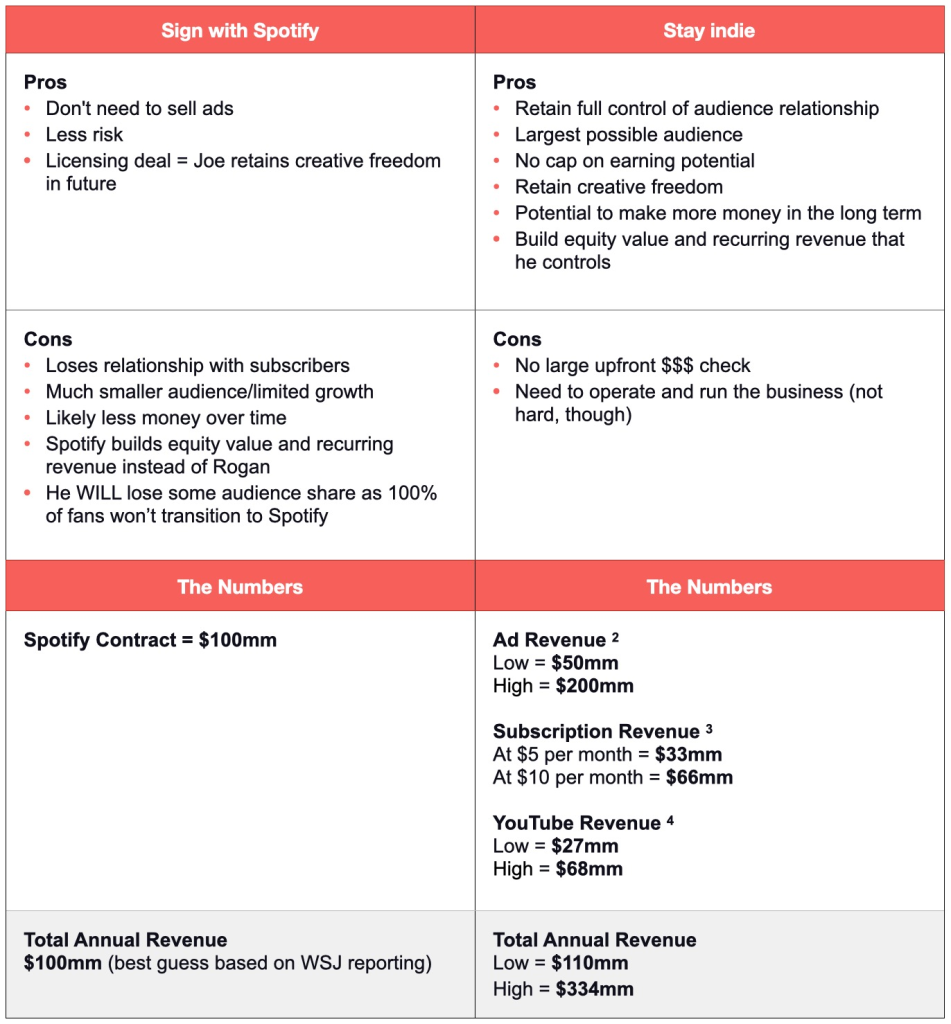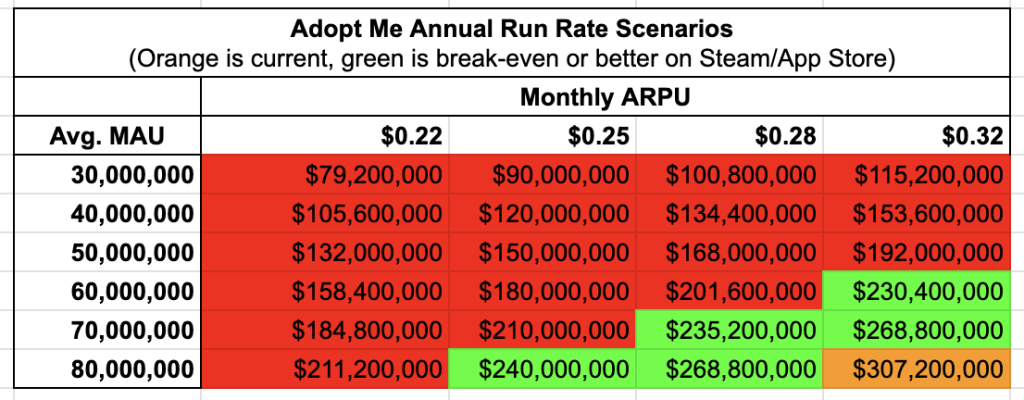
At 350 million monthly active users (MAU), Roblox boasts a user base rivaling the combined size of Steam, Xbox Live, and PlayStation Network. However, this impressive engagement comes hand in hand with an exorbitant 70-80% platform tax. In any case, Roblox is too big to ignore. Its bigness forces Roblox and non-Roblox developers to grapple with a pivotal choice: to depart from or align with the platform. Roblox departers jeopardize the very audience responsible for their success, while Roblox-joiners scoff at the prospect of surrendering nearly 80% of their revenue to the platform. But there’s a third door, a Micheal Scott win-win-win, where players, Roblox, and developers win. It’s time for Roblox SKUs.
Talent is increasingly grappling with platforms’ growing ability to control supply via their massive scale of demand. It’s a classic story of Ben Thompson’s Aggregation Theory. Taylor Swift briefly left Spotify for undervaluing her catalog, only to come back within the year. No concessions were reported. Microsoft tried paying top Twitch steamer Ninja $50M to join their Mixer platform, only for it to explode within the year; Ninja failed to bring viewership. And, of course, Marvel famously paid their early actors hundred of thousands of dollars, not millions. In each case, the platform helped to create talent, not vice versa. But there’s a curious effect at the tippy top of the talent spectrum; some creators have never been worth more.
Only recently, TV showrunners like Shonda Rhimes were raking in $300M, and Joe Rogan scored a cool $200M on Spotify. In each case, the platform and the talent evaluate the joint and separate production functions. Clearly, Shonda Rhimes can produce more with Netflix’s near-limitless resources on top of instant global distribution to millions. While Shona may not capture all of the joint production gains, she captures enough compared to going independent. But is low-capital podcasting the same? Andrew Wilkinson argued that Spotify ripped off Joe Rogan despite having just signed a nine-figure exclusive podcasting deal. Rogan traded upside for security and lost hundreds of millions in expected revenue. Rogan had been sitting on oil he refused to extract – a little arm grease would have let him own the listener relationship but, more importantly, capture LTV gains. Swift, too, had to reckon with reaching 500M fewer fans after removing her catalog from Spotify. In each situation, talent had to weigh their value against the platform: does the talent make the platform, or does the platform make the talent? Roblox developers aren’t asking this question enough.
Wilkinson’s Rogan Pro/Con List

Roblox developers grapple with an economic structure designed to cut off growth; for every $10 spent, developers only see ~$2.25. However, unlike a particular App Store, the platform’s benefits are clear and vast: Roblox covers server costs, handles payments and customer support, provides an engine, and, most importantly, an audience of 300M MAU. Once you consider the opportunity cost of Steam / the App Store at a 30% platform fee on top of another 25% in server costs, the Roblox tax shrinks to a more reasonable ~20-30% toll tax.
As David Taylor’s excellent piece models, the top Roblox game, Adopt Me, annually earns the equivalent of one month of a top mobile game. This is around $300 million for Adopt Me, but developer Uplift Games sees just $77 million after Roblox’s cut. Adopt Me likely lands at ~$0.32 monthly ARPU on 60-80M MAU. If they maintained similar monetization, Adopt Me could lose more than 20M MAU or 25% of its audience and break even on Steam or the mobile platforms. At some point, the platform tax causes enough pain to consider alternatives.
Adopt Me’s Gamble

Axing Roblox is too risky, but shipping additional SKUs on mobile and HD platforms is a more evident and safe play. At $70m+ in annual revenue, a port should cost no more than 10% of revenue. Roblox developers own their IP, so they have legal rights to do this. In some ways, this strategy mirrors the rise of webstores from mobile publishers to save on platform fees. This argument also works in reverse. Not only should Adopt Me launch a mobile SKU, but some developers should consider a Roblox SKU. Mainly Steam’s new wunderkind, Battlebit.
In February of last year, va ideo of a high-fidelity Roblox shooter, Frontlines, shocked players and onlookers; Roblox’s engine could do more than squares and circles.
I can't believe this is a Roblox game pic.twitter.com/kN4TCe67Av
— KreekCraft (@KreekCraft) February 23, 2023
But despite the fanfare, Frontlines maxed out at 6,000 PSU. Meanwhile, on Steam, voxel-based first-person shooter Battlebit rocketed up the Steam best-seller charts as a $15 premium game. From a team of only four, Battlebit maintains 60,000 PSU. The acquisition and monetization profiles could not be more different; Battlebit counts 2M in lifetime sales at $15 LTV, compared to Frontlines’ 42 million visits at a factional pennies LTV. While Battlebit will indeed decline, the game has grossed at least $30M, likely far beyond Frontline’s lifetime revenue. As it turns out, HD experiences don’t work inside Roblox, but Roblox experiences might work in HD. Q234Battlebit follows this model, as does Unturned, another Voxel-based Steam hit from developers who started prototyping in Roblox.

Roblox should make it easy to bring Battlebit and Unturned from Unity to the platform. While Roblox’s proprietary engine is as much of a technological as it is a corporate requirement, Unity plug-in or “port layer” brides some of the gap. If the platform can run high-fidelity titles like Frontlines, it can undoubtedly support more diverse art styles with broader appeal.
As Roblox continues to grow, the platform faces pressure to either increase revenue share with top developers or risk losing its biggest hits to greener pastures. Conversely, Roblox faces an opportunity to bring hits like Battlebit and Unturned onto the platform. With billions in revenue on the line, Roblox must find a way to balance platform economics with creator incentives before restless developers leave and take their valuable intellectual property with them.